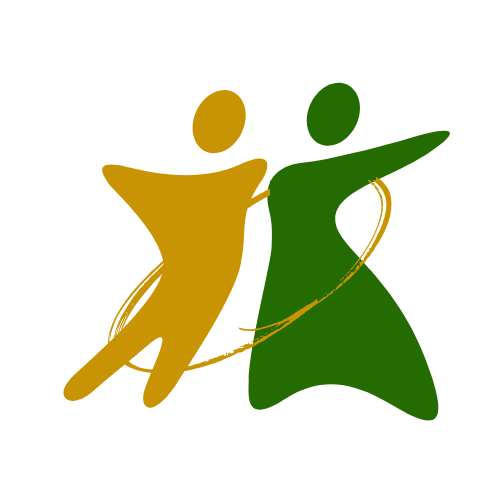Become a Dance Movement Therapist
The Program
We are calling students to apply for 2 years (DTR) of Dance Therapy Registered and apply to be members of the American Dance Movement Therapy Association and be prepared to travel to America for conferences. The goal of this initiative is to create an institute of African dance within different universities worldwide, with an exchange student program between universities.
Our activities include:
The workshops focus on issues that affect practitioners to facilitate life-span development, prevent, diagnose, and treat issues that interfere with healthy functioning, and assess, evaluate, and develop treatment goals.
We provide top-quality webinars and organized seminars designed to help you achieve continuing education, and increase your knowledge of the Dance/movement therapies field. and support your overall professional development.
Through Dance Auditions, DMTs get the opportunities to hone their skills, receive corrections, learn new materials, familiarize themselves with a choreographer’s unique movement vocabulary, and experience her/his different teaching styles.
Through access to various Care Programs, we provide Mental Health and Psychosocial Support (MHPSS). We achieve this through the treatment and prevention of psychiatric disorders such as depression, anxiety, and post-traumatic stress disorder (PTSD).
The Course
The course to take to become a Dance Movement Psychotherapist will teach you how to use dance and movement to help people deal with emotional, psychological, and physical issues. Movement therapies taught can be used to decrease pain, stress, and debility and improve ROM, strength, balance, coordination, cardiovascular health, physical fitness, mood, and cognition. However, these movement therapies can only be used as adjunct treatments to supplement the standard-of-care treatment.
This MA equivalent program is for candidates who have a first degree or two years of professional experience in Dance, Music, Theater Arts, Painting, Designing, Education, Anthropology, Physical Education, Nursing, and Philosophy.
Admission is by audition, a show of transcript, and a portfolio of previous work. Successful candidates may have part of their internship and fieldwork in the US and Nigeria.
FAQ
Most Frequently Asked Questions and Answers
Dance/movement therapists help their clients gain insight into patterns of behavior, develop effective communication skills and relationships, improve self-esteem and body image, expand their movement vocabulary, as well as create new options for coping with problems.
Movement is the primary medium dance/movement therapists’ use for observation, assessment, research, therapeutic interaction and interventions.
Dance/movement therapists help develop treatment plans and goals, document their work in clinical records and collaborate with professionals from other disciplines.
The extensive range of dance/movement therapy techniques and the needs and abilities of participants allow for a wide variety of movement activities in dance/movement therapy sessions. From Dance/movement characteristics, from subtle and ordinary movement behaviors to expressive, improvisational dancing could occur.
There are two routes one can pursue to become a dance/movement therapist. One way is through ADTA Approved Graduate Programs, and another is Alternate Route defined as a Master’s degree with dance/movement therapy training from qualified teachers. Other requirements include movement observation and assessment, psychology coursework, fieldwork, internship, and dance experience.
At the undergraduate level, there is no specific degree required. However, it is a good idea to have substantial exposure to topics related to both dance and psychology. For specific prerequisites, contact us.
The dance/movement therapy credential is awarded at the graduate level. Therefore, a Master’s degree is required. Upon completion of an ADTA Approved Graduate Program or the Alternate Route and acceptance by the Dance/Movement Therapy Certification Board, the Registered Dance/Movement Therapist (R-DMT) credential is awarded. R-DMT represents attainment of a basic level of competence, signifying both the first level of entry into the profession and the individual’s preparedness for employment as a dance/movement therapist within a clinical and/or educational setting. The Board Certified Dance/Movement Therapist (BC-DMT) credential can be obtained after the R-DMT is awarded, with additional requirements and experience. BC-DMT is the advanced level of dance/movement therapy practice, signifying both the second level of competence for the profession and the individual’s preparedness to provide training and supervision in dance/movement therapy, as well as engage in private practice.
Opportunities to volunteer/shadow a dance/movement therapist are limited due to the nature of the work and the need for confidentiality. If you are interested in volunteering/shadowing, contact your region’s Member-at-Large or a local chapter.
If attending an ADTA Approved Graduate Program, expect to be in school for two to three years, full-time. For the Alternate Route, the length of time depends on many factors, such as committing full or part-time, location of courses (some travel may be required), when courses are offered, when the individual can attend, etc.
It is strongly encouraged to pursue a broad practice in dance, including a variety of dance styles and techniques, choreography, performance, and teaching. For education, focus on psychology courses and a course in kinesiology and anatomy. Helpful experience would include working or volunteering with people in various human service settings (i.e. summer camps, schools, hospitals, nursing homes).
Attending any of the ADTA Approved Graduate Programs provides in-depth knowledge and training from exceptional, experienced, board certified dance/movement therapists. The ADTA suggests contacting and/or visiting the school(s) to help decide if the institution is a good fit.
The ADTA approves programs that meet the requirements stated in the ADTA Standards of Education and Clinical Training. Graduates of approved programs meet all educational requirements for the Registered Dance/Movement Therapist (R-DMT) credential.

Educational Skills Development and Dance Movement Therapy is a chapter of the American Dance Therapy Association. It is the Center for Research and Development of African Dance and Music as Healing Art.
Navigation
CONTACT US
9910 Franklin Street
Lanham, Maryland, 20706, US.
(+1) 301-448-6737
(+234) 813-668-8261
contact@skillsresourcesdevelopmentinc.com
